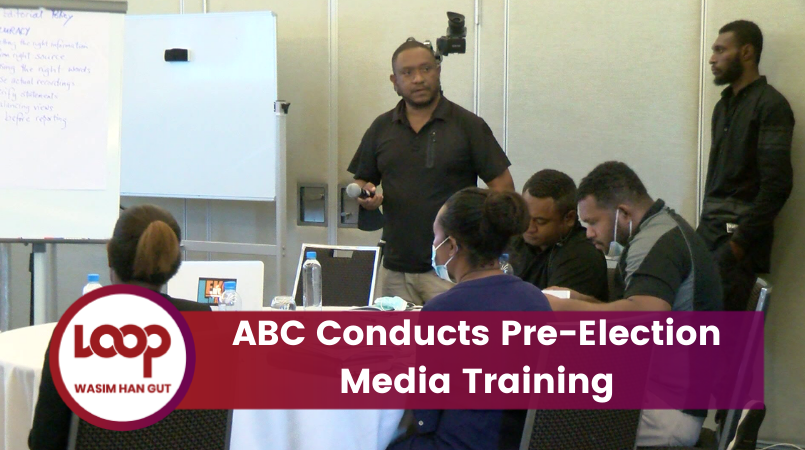
In preparing reporters and journalists to cover the 2022 National General Elections, the Australian Broadcasting Corporation International Development (ABCID) this week facilitated a pre-election media training.
The ABCID in partnership with Papua New Guinea Electoral Commission (PNGEC) and International Foundation for Electoral Systems (IFES) invited media personnel to participate in the Election Awareness Training Workshop that started on Monday and ended today.
ABC’s Election Coverage Advisor for ABC International in the Pacific/PNG, Andrew Fisher and co-facilitator, senior journalist Scott Waide took journalists through the training.
The training on Monday engaged news reporters of both mainstream media and registered social media companies, in preparing them to cover the election.
About 20 news reporters and social media producers participated in Course 1, while a good number of reporters mostly from the NBC branches nationwide joined via zoom from their respective provinces.
The facilitators emphasized on planning newsroom for election coverage and how to address certain issue when covering elections in various provinces and due to cultural background, the challenges varied.
Fisher highlighted the need for a fair, balance story, and called for journalists to remain independent when writing stories for intending candidates. He called for news reporters to be careful and make checks and balance before publication.
Reporters were told that it is important to keep a log on communication or dialogue with the interviewee or person in the story such as text messages, call logs and emails.
In case of lawsuits, these can be used as evidences to save reputation of the reporter and its media organization.
Trainer, Scott Waide said there is enough technology available to double check and get the balance to stories being published and encouraged reporters to do that.
He said sometimes a press release is received at the 11th hour, and he advised the reporters not to proceed with it but delay running it until it is confirmed.
“There has to be a sound understanding of the content that is presented. If you are not sure ask that person in the field what he or she is trying to say.
“It’s always good to have recorded statements because you might misinterpret and then end of getting sued for it or getting blasted on social media for it,” Waide explained.
Two reporters, two editors and two producers/presenters from media organizations were invited to attend this vey vital training as the country goes to the polls.
The highlights for the training were;
Course 1- for News Reporters who would be for the first time reporters covering National General Elections would ensure they deliver the best election coverage for this election.
Course 2, was for editors and news managers, with the theme organizing the newsroom for best election coverage, while Course 3 for Program officers, Producers, Presenters and newspaper Supplements with the theme organizing production for best election coverage.
The participants were divided into groups to discuss the different topics and responses, which made learning interactive, interesting and conducive.
